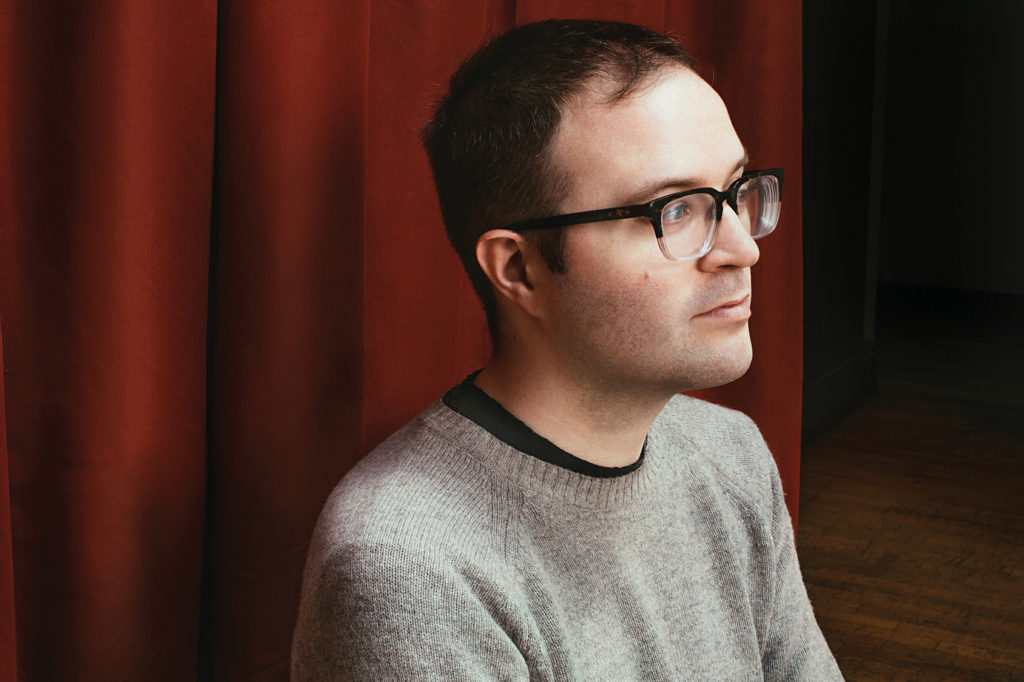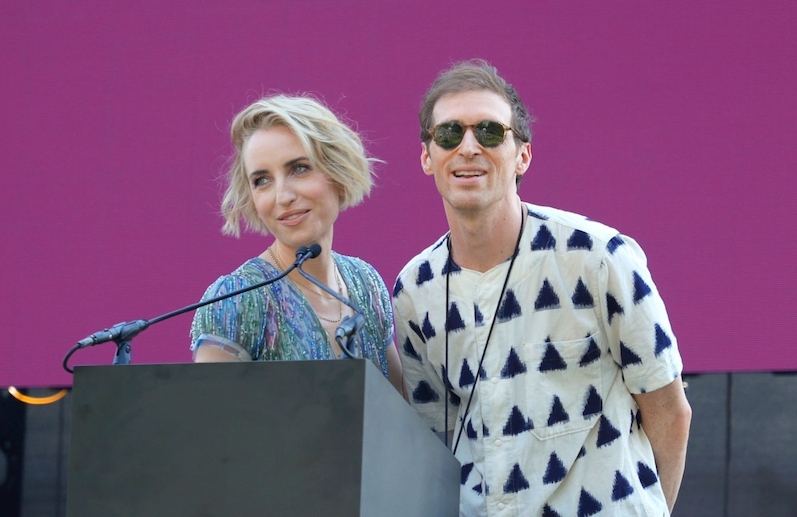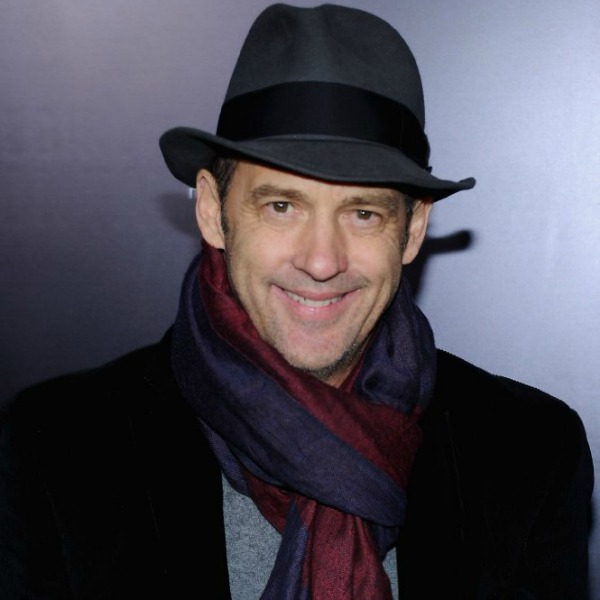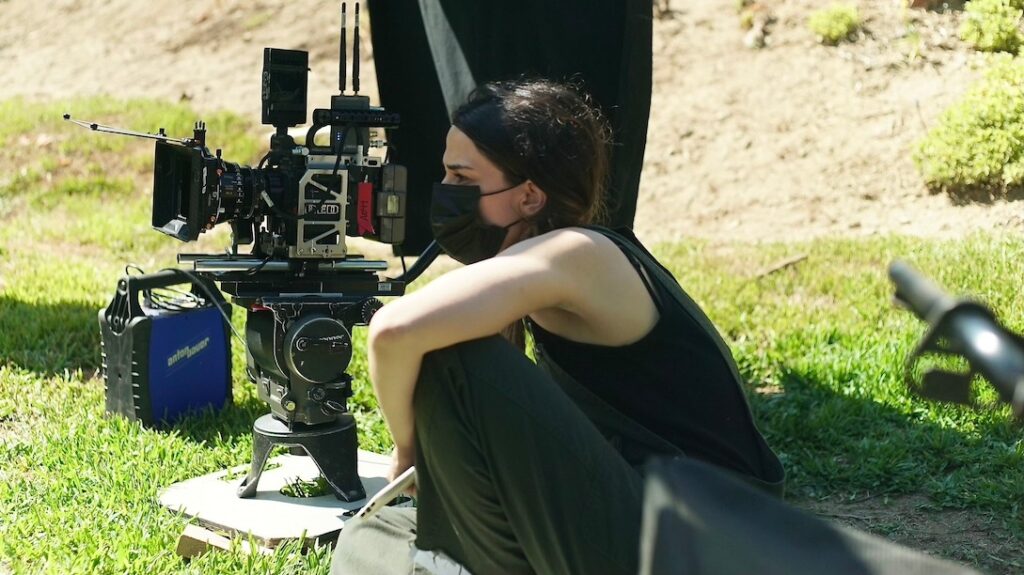After writing, directing, producing, and editing back-to-back film festival hits Modern Love is Automatic and Vacation! in 2009 and 2010, filmmaker ZACH CLARK turned to crowdfunding to launch his next film, White Reindeer, an indie Christmas movie that became a critically-adored IFC Films release in 2013.
Clark’s newest film, the dark comedy LITTLE SISTER, follows a young nun named Colleen (Addison Timlin) as she travels back to her hometown to visit her estranged family before taking her final vows. Her brother (Keith Pouslon) is a reclusive veteran who was severely disfigured in the Iraq War. Her parents (Ally Sheedy and Peter Hedges) are stoners not quite ready for their daughter’s return. And her friends and neighbors still only seem to remember Colleen as the black-makeup-wearing goth teenager she was before starting a new life in the church. Little Sister had its world premiere at the 2016 SXSW Film Festival.
Executive produced by Joe Swanberg and distributed by his company Forager Films, Little Sister will be opening in select theaters and OnDemand on October 14 and expands to more cities (including LA) on October 28. Zach Clark was nice enough to talk with us about the film. He discusses re-casting a role at the last minute, meeting one of his filmmaking heroes in John Waters, and why it’s a good idea to make movies with your friends.
——
COLIN McCORMACK: I wanted to start by talking about financing. You helped fund White Reindeer with Kickstarter. With that film being well-received, was it easier to raise your budget this time around for Little Sister?
ZACH CLARK: I think part of it is more that I am increasingly trying to make movies that need bigger budgets, if that makes sense. I’m trying to tell stories that require more resources, so by virtue of the content I have to raise a larger amount of money. I mean, White Reindeer did well critically and got a nice release and felt like it was a part of the conversation that year, and I do think that helped certainly bring interest and exposure to whatever the next thing was going to be. But it was still an uphill battle. It’s always an uphill battle, just in different ways. It wasn’t easier to raise the money than it was for White Reindeer, we just raised it in a different way.
CM: What was the decision to not go with Kickstarter this time?
ZC: I personally feel like you can only call that in once [laughs]. Or at least once every so many years. We used Kickstarter for White Reindeer because we really had to, ‘cause there was really no other way that movie was going to get made. And we really felt obligated– that’s a vote of confidence from those people, and to turn around and hit them all up for money again to make another movie feels like, Ohh okay, so this is what you’re gonna do every time? It’s not what I wanted to do. Again, part of continuing to make movies is hopefully that they get a little bigger and reach a few more people every time and it just required a different set of resources. The way that we were going about ensuring we could raise the money to make that movie was different: Getting name actors on board and that sort of stuff. I just think that we changed the kind of movie it was a little bit. And the kind of movie that Little Sister is required us to go through a more traditional indie film-financing route.
CM: How early in the process did you get Ally Sheedy attached?
ZC: We got Ally very, very late in the process. We were already shooting the movie.
CM: Wow.
ZC: We had an actress who was attached to that part pull out. And we got Ally the script right away. We thought of her that night and yeah, got her the script, she read it very quickly, and very quickly after that we booked a flight, and very quickly after that she was on set saying the words.
CM: How calm did you stay during that? Was it just happening so fast that you didn’t have time to freak out, or did you thoroughly freak out?
ZC: Yeah, at a certain point the turnaround was so quick between realizing we didn’t have the previous person and getting Ally on board that there really was no downtime. There wasn’t a moment for me to step back and think, Okay I’m really nervous about this, it was just, Okay cool we have to solve this problem, we have to get someone new. But also, as I’ve found tends to be the case with these things, what you might think is a disaster that is going to totally derail your entire movie turns out to be one of the best things for it. So it really was a blessing for the film. ‘Cause Ally is one of the best actors I’ve ever worked with. I’ve never worked with someone so prepared and professional, and she’s just phenomenal [in the] part. She did such an amazing job in the film.
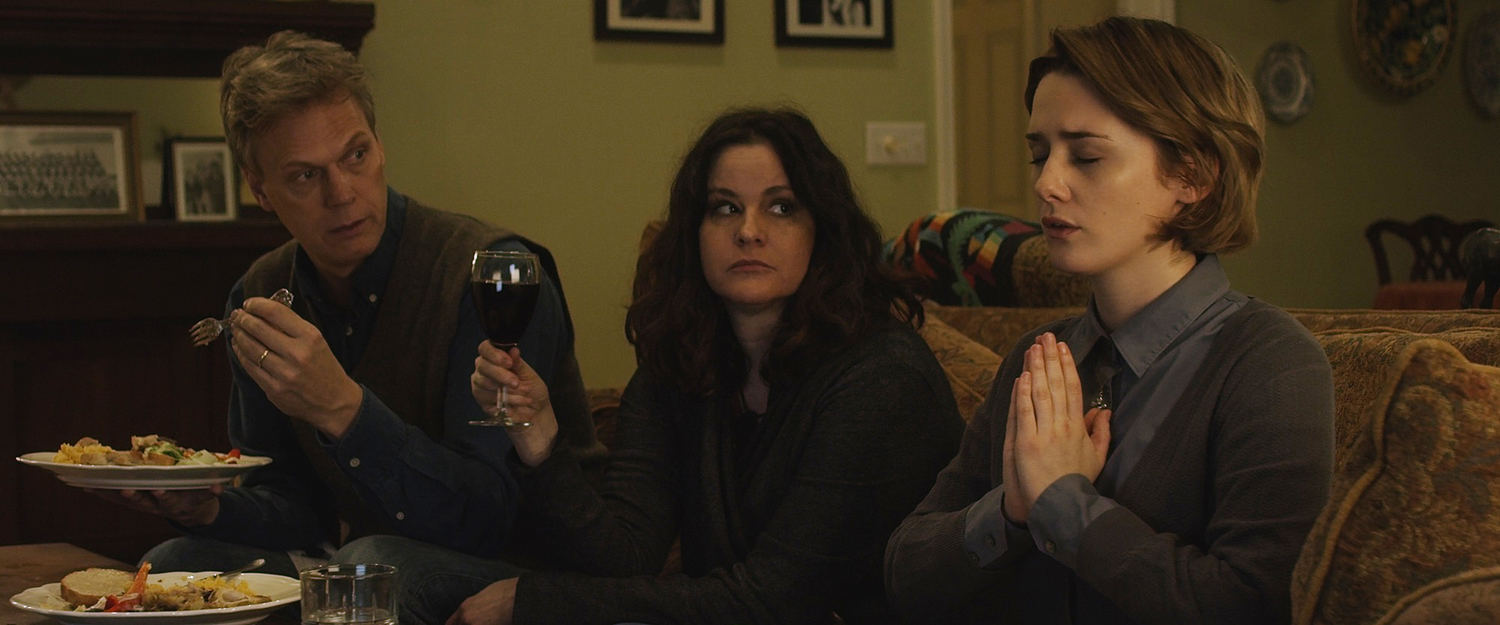
CM: Some of your other films were shot in spurts over a long stretch of time. Did Little Sister have a more traditional shooting schedule?
ZC: Yeah, we shot for about five weeks. The first week was a short week in New York, and then we all traveled down to North Carolina and shot for basically three-and-a-half weeks down there. But the length of time was about five weeks from when we started to when we finished.
CM: What made you decide on shooting in North Carolina?
ZC: Well, our producer Melodie Sisk, who also wrote the story with me, her parents live in Asheville, North Carolina, and their house is the house that the family in the movie lives in. So I’d had a sort of vague idea for a script about a little goth girl who is a nun now, and her brother is in the Iraq War and has this thing happen to his face, and the parents are pot-smokers. But I couldn’t really wrap my head around it, and Melodie was like, “You should come see my parents house. It’s on the side of a mountain in Asheville, North Carolina, and I’ll take you to see some of their friends’ houses and their friends’ businesses.” I went down and she showed me all those things, and those became the locations for the film. Pretty much every major location in North Carolina was written specifically for [the film] in the writing process. I knew exactly what those places would be, I knew exactly what the layout of those places would be as well.
CM: Did you hire a lot of local crew and cast down there?
ZC: Yeah, there was a fair amount. I don’t know the exact ratio of local people to out-of-town people. But we also brought down a fair amount of people like myself and Melodie and Daryl [Pittman], who is the other producer and also the cinematographer, he came down. We’ve worked with the same crew on most of our films, or have also picked people up along the way. So we kind of got the old band back together, as we always like to do ‘cause it’s fun to make a movie with your talented friends. But we did also have some local hires down there. Our production designer was local; a lot of our day-player actors were also local.
CM: Speaking of making a movie with your friends, is there a strategy to balancing having a fun and familial set with all your friends with the need to make your days, not go over schedule, and sort of that “business” side of things – is that ever hard to balance?
ZC: To me, they go hand-in-hand. If A) you are hiring good, talented people, they are going to do their jobs and do their jobs well; and B) if you hire cool, nice people, they’re all going to get along and they’ll be way more willing [and] they’ll work harder because they’re all there and they’re all having fun. No one feels taken advantage of, everyone feels like their voice is being listened to, and they all believe in the thing. I think you get better work that way. On movies that are this small, it’s the only way I can conceive of ever doing it, honestly.
CM: The prosthetic makeup on Keith Poulson is really extensive and also really impressive. How did you guys achieve that type of work on a limited budget?
ZC: Well, I am a firm believer that making an independent film is not really about spending less money on everything; it’s not like every single line-item gets dropped as low as possible. You figure out where you need to actually spend money, and then pull back on other stuff. It was just a thing we knew going in all along, [the prosthetic makeup] needed to look right and it needed to look believable. When we first approached the budget for this thing – as is also usually the case, it was a lot larger than we ended up actually making the movie for – but we never dropped the amount of money we were going to spend on the makeup. We never cut corners when it came to that makeup, and I think that’s part of it too. Because also for a movie that’s small, you need things that make [characters] believable. You need things that make them feel real and make them feel bigger than they are, and Keith’s makeup was 100% that from the beginning.
CM: What was the process of casting Addison Timlin in the lead?
ZC: I had seen Addison in some of her other films. I’d watched her in the Town That Dreaded Sundown remake and a few other things and really liked her. And she’d worked with a couple friends of ours; she’d worked with Bryan Poyser for a movie called The Bounceback, which I think is now called Love and Air Sex. And she was just phenomenal in that film, she really stole every scene she was in. And yeah, we sent her the script and she really liked it, and I met up with her and we both thought each other were cool, nice people, and she agreed to do it.
CM: Was the casting mostly offers, or did you guys do a lot of auditions?
ZC: All the bigger parts were offers, either through agents or because they were friends of mine and I knew they were talented and appropriate for the part. But we did traditional casting stuff for a lot of the smaller parts too, we did a New York round [of auditions] and a North Carolina round.
CM: You’ve worked with Joe Swanberg before, but this is the first time his company is distributing a film of yours – and maybe the first time they’re distributing a film, if I’m not mistaken. How has working with a relatively new distributor been?
ZC: It’s a pretty exciting adventure because Joe’s company also put up most of the money to make the film. So it was part of a decision-making process, where we’d heard “No” from some people and we’d had a couple conversations with some [buyers], and the offers that were there weren’t as impressive as we’d liked them to be. And we crunched the numbers and took a look at it and made the decision that if we sort of took it out there ourselves, we could probably do just as well as anyone else could do for it. It’s pretty fun and exciting, honestly.
CM: So I assume you’re putting in a little more legwork into the marketing and publicity and theatrical bookings than [you did on previous films]?
ZC: Yeah, totally.
CM: Is that fun? I’ve talked to directors who are so hands-off when it comes to the distribution. Is that something you’d look at as a luxury – to have a publicity team be able to handle that – or do you like being involved in this part of the process?
ZC: For me, I do really enjoy it. I’ve been talking to a few friends recently who are working with distributors, and it’s nice [for me] because the trailer is whatever we wanted it to be and the poster is whatever we wanted it to be. We really got to sort of define how the movie was going to be presented ourselves, and to be able to put what we think its best foot forward is. To me, it’s super exciting. It’s really cool to learn about all this stuff in the process of doing it as well. You know, each [movie release] is its own, unique special thing, but I will be incredibly more knowledgeable and informed about this entire process going into the next thing than I ever have been before. And literally if you make movies, there’s no part of the process that knowing more about will harm you in any way, if that makes sense. It doesn’t hurt in any way for me to know way more about distributing a movie than I’ve known before. It doesn’t hurt me in any way to go through that process. So yeah, it’s pretty rewarding, honestly. I’m finding that I really enjoy it.
CM: As you said, the poster was something you guys personally chose. I’m a sucker for a good movie poster so I like to point them out when I see them, and yours is great. How did that come about? Did you know the artist or was it a commissioned work?
ZC: No, I’d never met Akiko [Stehrenberger] in person but I’ve been a real fan of her work for quite a while. The same way these things usually go, I really liked her stuff and reached out and said, “Hey, there’s this little movie we’re making and I really like your work.” And she’d done the poster for Joe’s last film, Digging for Fire, so there was a bit of that connection there too. So I just said, “Is this something you’d be open and interested to do?” And she was on board and she did amazing, beautiful work.
CM: When I interviewed Riley Stearns I asked him about this, but you’re also a frequent contributor to The Talkhouse. Are you ever hesitant to go too hard when reviewing a movie seeing that you might potentially run into the filmmakers at some point?
ZC: I don’t think I’ve written that much negative stuff about any movie for The Talkhouse [laughs]. I feel like the most [harsh] I’ve been is just, Eh this is okay. I really hated the Cabin Fever remake. It was awful, that was maybe the worst thing I’ve written about something. But now that’s out there in print… [laughs]. But I haven’t run into that guy so I haven’t had to really deal with that yet. But also the quality of a movie is in no way, shape, or form an indicator of the quality of the human being that made it, which is a thing I firmly believe in. I don’t take it personally when someone writes something negative about something I’ve made. There’s a world of opinions out there and if it’s about a movie or something, you can feel any way you want to about a movie, it’s fine. There are much more pressing things to be concerned about right now. [Laughs]
CM: And you did get to interview John Waters for The Talkhouse Podcast. What was that like for you?
ZC: It was great! He was super nice. He’s obviously a huge influence on me. So it was really nice and sweet of [Talkhouse Film & TV Editor-in-chief Nick Dawson] to set that up, and it was really cool to have the opportunity to speak to him. And I love Multiple Maniacs, that’s always been one of my favorites. So to do it in that context [of the film’s restoration] was also pretty exciting.
CM: That was your first time meeting him?
ZC: I had like shaken his hand a couple times before. That was my first time having an actual conversation with him.
CM: What’s next for you? Are you swamped with the release coming up, or are you already working on your next film?
ZC: Yeah, most of my energy is focused on getting Little Sister out into the world right now, but I just finished writing another script that I’ll try and make maybe next year [laughs]. If I can get my act together.
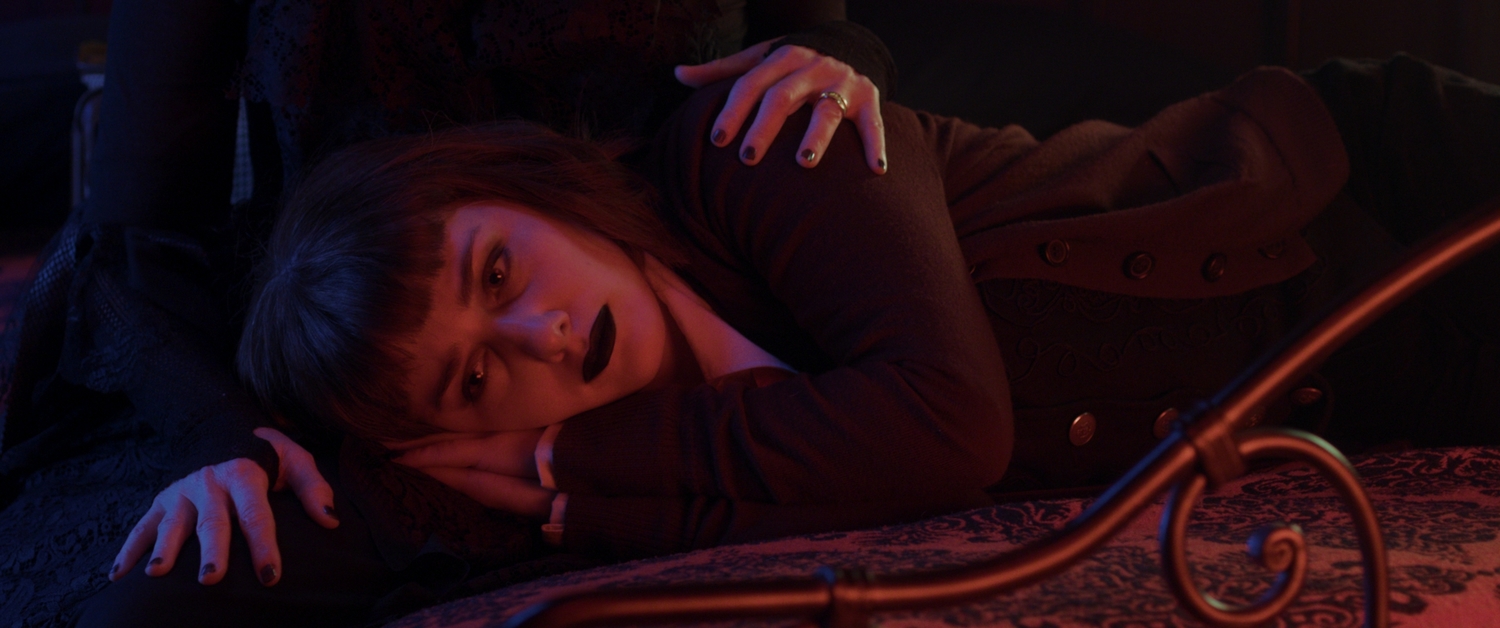
__
Thanks to Zach for talking to us about LITTLE SISTER.
If you’re an independent filmmaker or know of an independent film-related topic we should write about, email blogadmin@sagindie.org for consideration.

